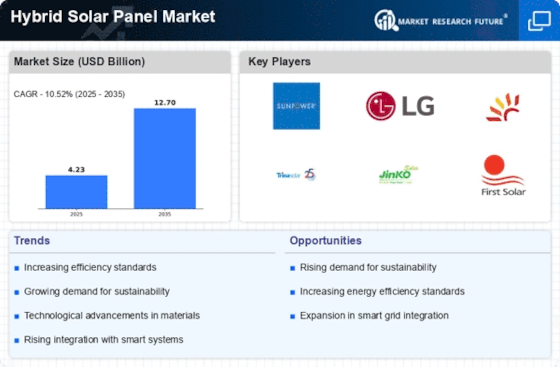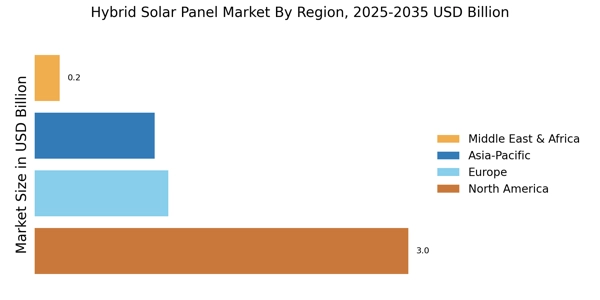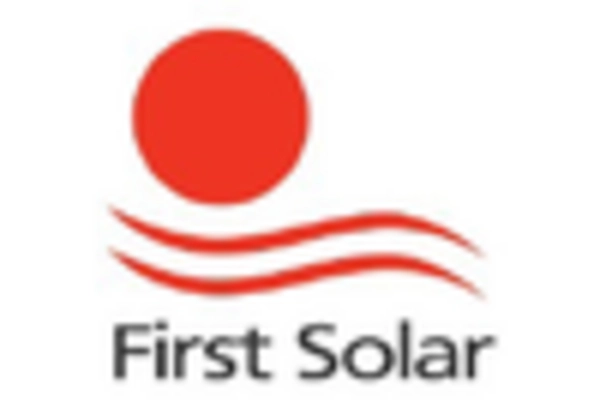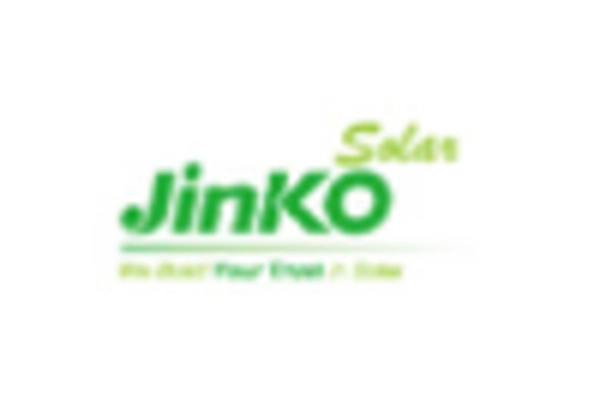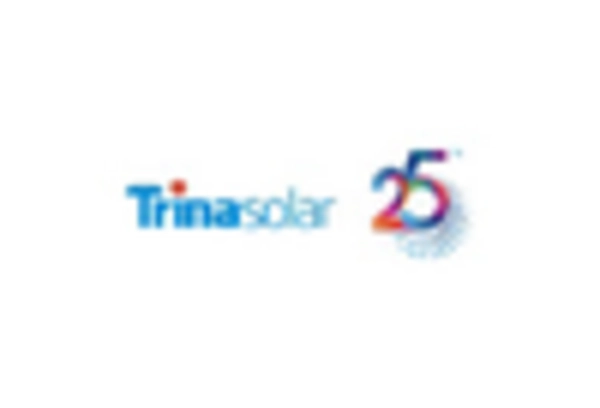Economic Viability
The Hybrid Solar Panel Market is increasingly recognized for its economic viability. As the cost of solar technology continues to decline, hybrid systems become more accessible to a broader range of consumers. Recent data indicates that the cost of solar energy has decreased by nearly 80% over the past decade, making it a competitive alternative to traditional energy sources. This economic shift encourages both residential and commercial sectors to invest in hybrid solar solutions. Furthermore, the potential for long-term savings on energy bills enhances the appeal of hybrid solar panels, driving growth in the Hybrid Solar Panel Market.
Rising Energy Demand
The Hybrid Solar Panel Market is experiencing a surge in demand for energy due to increasing population and urbanization. As more individuals and businesses seek reliable energy sources, hybrid solar panels, which combine solar energy with other forms of energy generation, are becoming increasingly attractive. According to recent data, energy consumption is projected to rise by approximately 30% by 2030, necessitating innovative solutions. Hybrid solar panels offer a versatile approach to meet this demand, providing both efficiency and sustainability. This trend indicates a robust growth trajectory for the Hybrid Solar Panel Market, as stakeholders recognize the need for diversified energy solutions to address future energy challenges.
Technological Innovations
Technological advancements play a crucial role in shaping the Hybrid Solar Panel Market. Innovations in solar technology, such as improved photovoltaic materials and energy storage solutions, enhance the efficiency and effectiveness of hybrid systems. For instance, the integration of battery storage with solar panels allows for energy use during non-sunny periods, thereby maximizing energy utilization. The market for energy storage is expected to grow significantly, with projections indicating a compound annual growth rate of over 20% in the coming years. Such advancements not only improve the performance of hybrid solar panels but also attract investment and interest in the Hybrid Solar Panel Market.
Regulatory Support and Policies
The Hybrid Solar Panel Market benefits from supportive regulatory frameworks and policies aimed at promoting renewable energy adoption. Many governments are implementing incentives such as tax credits, rebates, and grants to encourage the installation of hybrid solar systems. These policies not only lower the initial investment barrier for consumers but also stimulate market growth. For example, recent legislation in various regions has set ambitious renewable energy targets, further driving the demand for hybrid solutions. This regulatory support is likely to foster a favorable environment for the Hybrid Solar Panel Market, encouraging innovation and investment.
Environmental Sustainability Initiatives
The Hybrid Solar Panel Market is significantly influenced by the growing emphasis on environmental sustainability. Governments and organizations are increasingly prioritizing renewable energy sources to combat climate change and reduce carbon footprints. Hybrid solar panels, which utilize both solar and other renewable energy sources, align with these sustainability goals. Recent studies suggest that the adoption of hybrid systems can reduce greenhouse gas emissions by up to 50% compared to traditional energy sources. This shift towards sustainable energy solutions is likely to propel the Hybrid Solar Panel Market forward, as consumers and businesses alike seek to contribute to a greener future.


